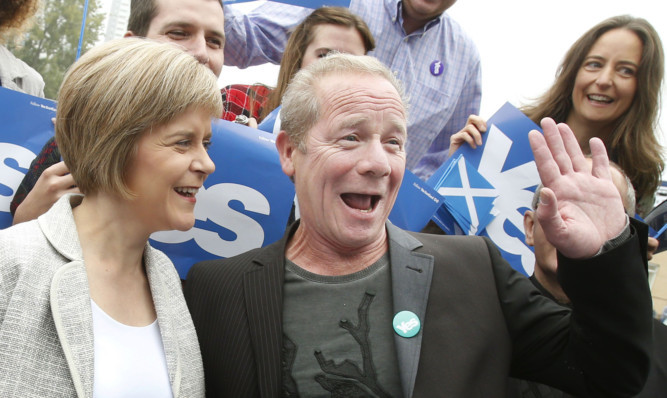Harry Potter actor Peter Mullan has criticised the BBC for “horrendous bias” in its reporting of the Scottish independence referendum.
The BBC was accused of pro-union bias last year.
Scottish star Mullan, 55, who played the Death Eater in the final two Harry Potter films, said he is “a massive supporter of public broadcasting and the licence fee”.
“I will be to the day I die,” he told Radio Times magazine. “I believe in the BBC, on principle, because most of the education I got when I was a kid I got through watching the BBC.
“I, Claudius introduced me to the history of the Roman empire. BBC reruns of David Lean films introduced me to Dickens.
“Panorama made me want to go to libraries and find out about the world. I mean it when I say I owe everything to the BBC.
“So to see the horrendous bias that went on against the Yes campaign before the referendum – to see the BBC used as a political cudgel against a legitimate democratic movement – really broke my heart.”
The Trainspotting actor stars in BBC Scotland’s new dramatisation of the Iain Banks novel Stonemouth.
He said his character was the latest in a line of “well-to-do” gangsters.
“BBC Scotland is terrified of class. I can’t remember their last big working-class drama. You can have working-class comedies, but drama? Nooo, even if it’s the criminal class, they get better suits and live in nicer houses,” he said.
“The BBC are saying to writers, ‘We don’t want the old Glasgow cliche, we don’t want another Just Another Saturday (the 1975 Play for Today about sectarian violence)’.
“But that was 40 years ago. Cliche depends on who’s in charge of the material.
“If you come up with a character who is an out-and-out psychopathic bastard and working-class Glaswegian, and if he’s interesting, then as far as I’m concerned, that’s legit.”
